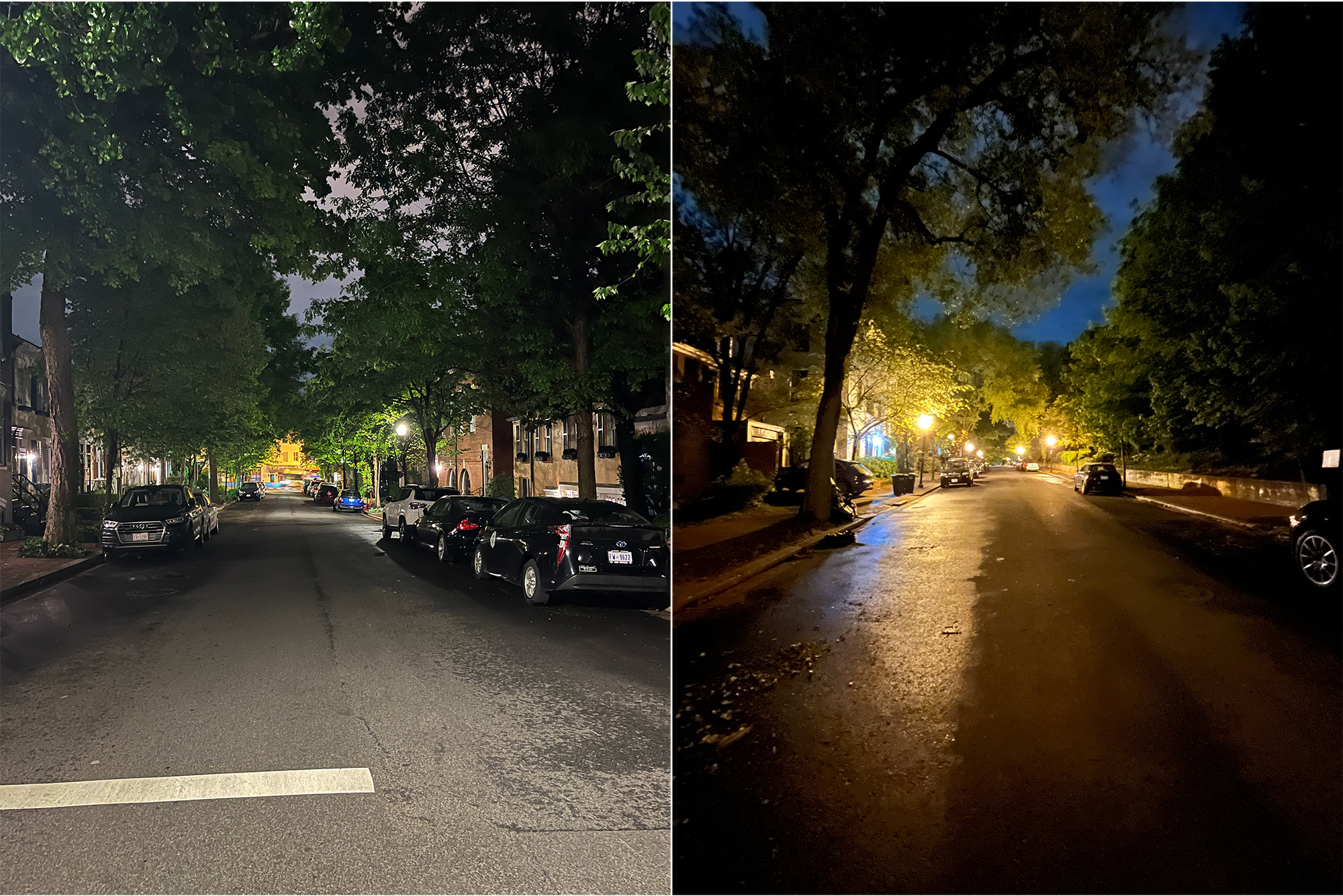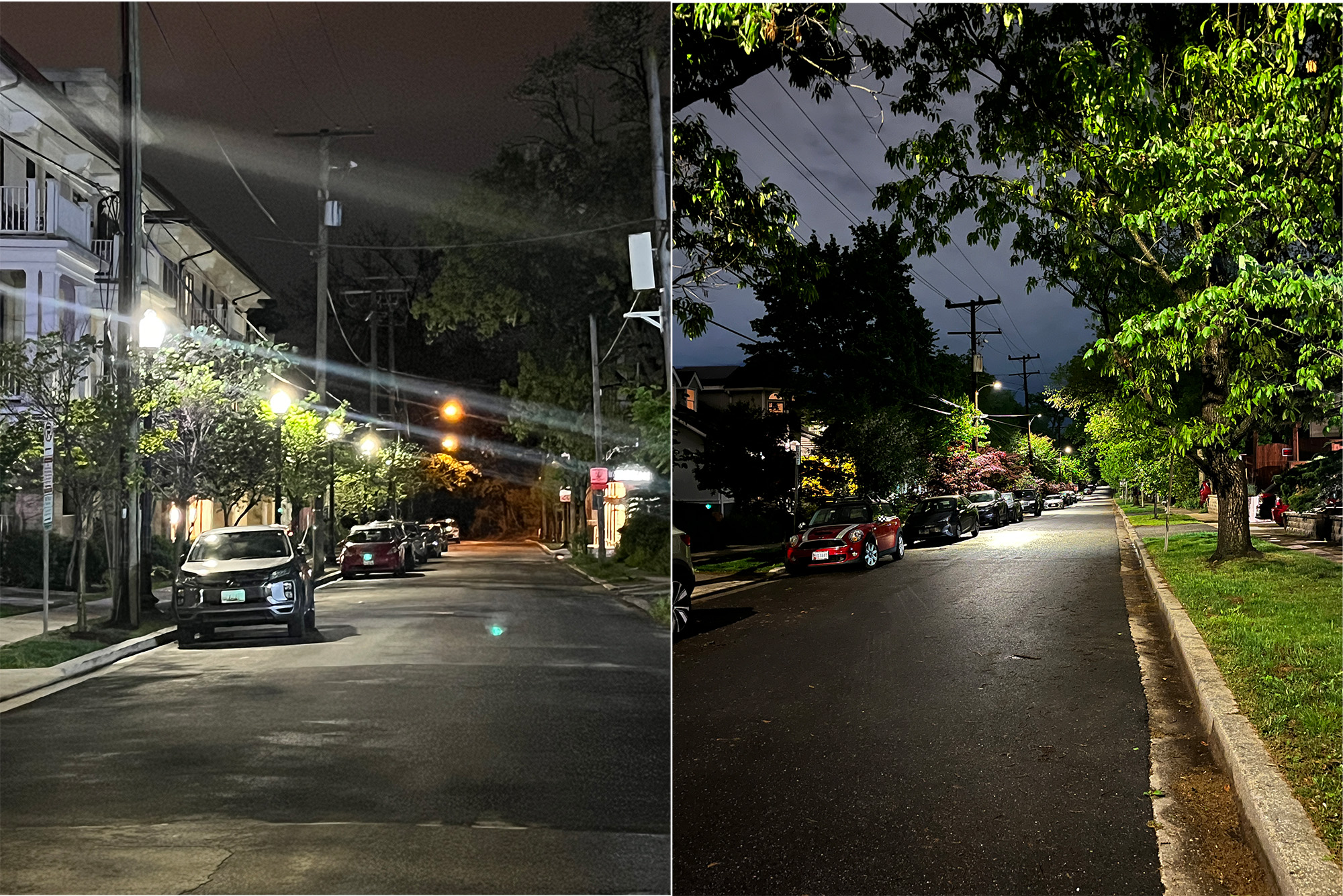LEDs Bring Energy Savings—and Light Pollution

Paul Chinn/The San Francisco Chronicle via Getty Images
As Washington, D.C., replaces existing streetlights with LEDs to save money and cut energy usage, it is running up against a problem—the streets are now too bright, and it’s impacting people and wildlife.
Energy-efficient or light polluter? Washington, D.C.’s decision to install new energy-efficient LED streetlights to reduce greenhouse gas emissions and costs is garnering attention from environmentalists who are concerned about the bright lights’ impact on people and wildlife.
Supporters of the project, which will change the existing high-pressure sodium and incandescent lightbulbs to energy-efficient LEDs, say it will reduce the lights’ energy usage by more than half. At the same time, environmental groups have raised concerns about light pollution—the excessive use of artificial light—and its impact on people and wildlife.
The district is one of many major cities across the country that have either converted streetlights to LEDs or are in the process of converting them. Los Angeles and Seattle have already completed such projects and Philadelphia is in the process of converting.
Last January, the district selected Plenary Infrastructure DC in a $309 million, 15-year public-private partnership to convert the city’s streetlights to LEDs and maintain them post conversion. The project will bring an estimated savings of $2.5 million in reduced energy costs and eliminate 38,000 tons of greenhouse gas emissions each year—the equivalent of taking more than 7,600 gas-powered passenger vehicles off the road in a year. This endeavor is one of many across the district to be more environmentally friendly.
“The implementation of a better, brighter streetlight network that is in the best interests of district residents and visitors is a top priority for us at DDOT,” a District Department of Transportation spokesperson said in an emailed statement.
Since the beginning of April 2023, there have been approximately 1,000 streetlights converted in Ward 7 as part of this project. The project is expected to be completed throughout the district by summer 2024.
District residents are noticing the brighter lights. Forty-two-year-old Zach Walls has two LED streetlights outside of his row house in Ward 4’s Manor Park. One across from his home and another in an alley behind that he believes were converted to LEDs in the last five years.
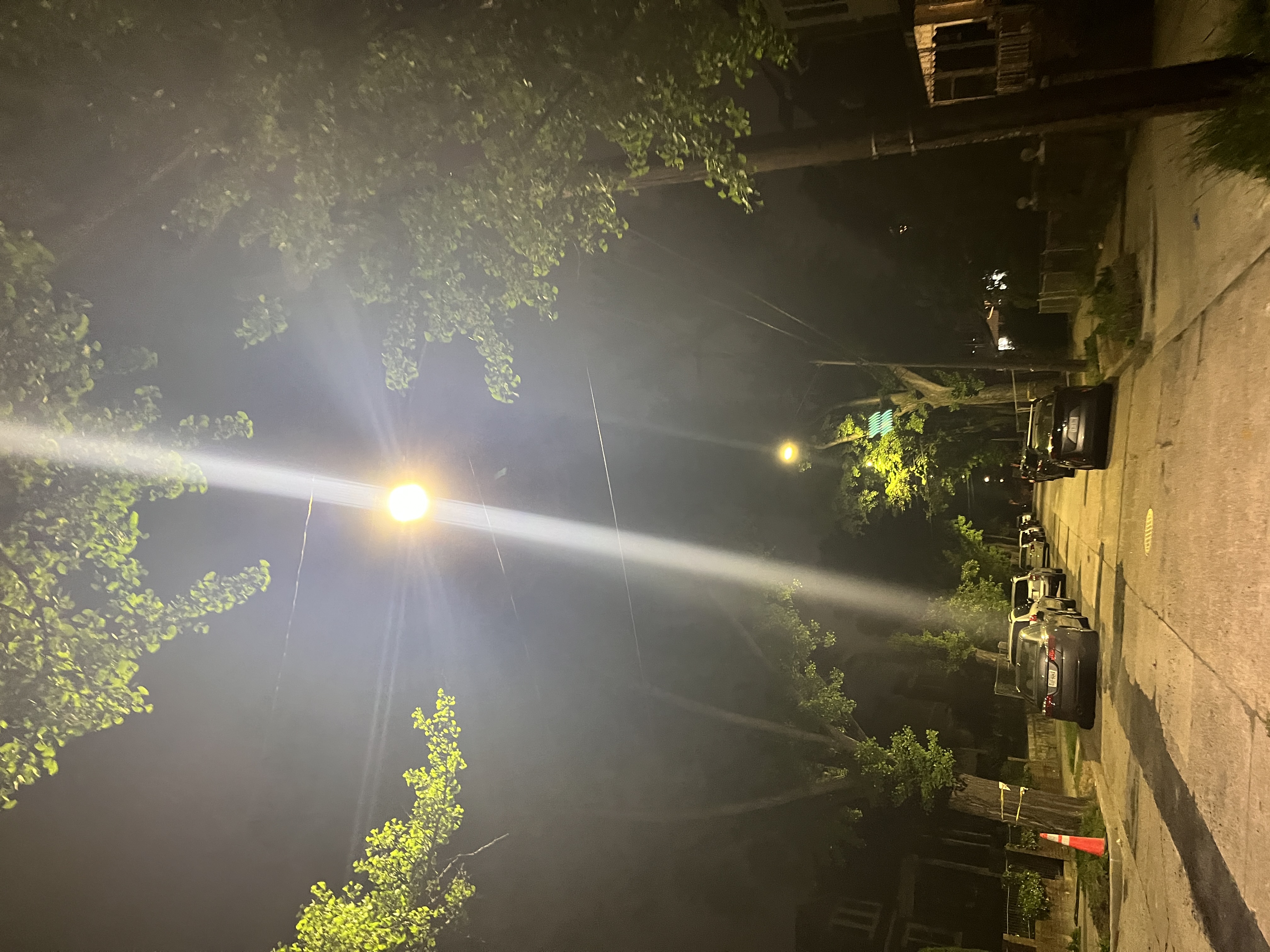
“The LED streetlights are a very bright, cold, white kind of bluish color,” Walls said. “They’re very daylight-ish, whereas the old versions used to be a little more yellow, they were a little easier on the eyes.”
The front LED streetlight shines into one of Walls’ upper bedrooms.
“You can’t sleep in the front bedroom without [blackout] curtains,” Walls said.
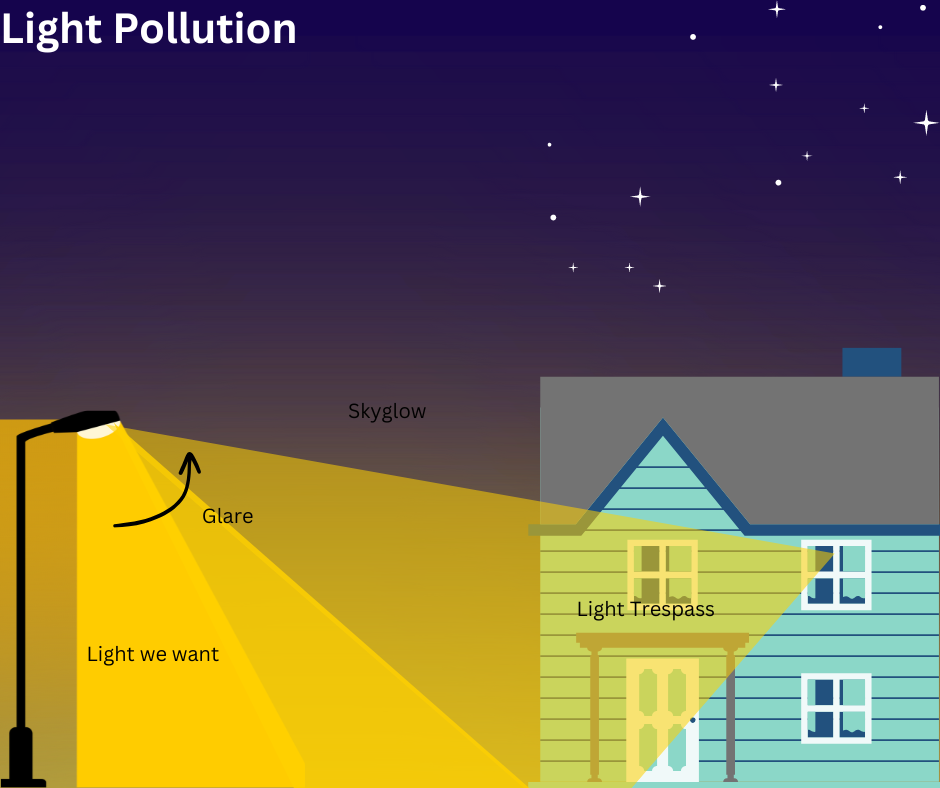
Walls’ experience is not uncommon. Studies have shown that the brightness of the lights can affect a person’s sleep. The American Medical Association noted that LED lighting can emit more blue light than other lights, creating more glare and affecting sleep by suppressing melatonin, which affects circadian rhythm, the internal process that regulates sleep.
“The circadian rhythm issue with humans, it’s the same with wildlife,” said Wayne Savage, chair of the ad hoc committee on light pollution for D.C.’s chapter of the Sierra Club. “[For] nocturnal wildlife, their behavior can be impacted by all of the urban lighting even great distances from urban areas. So, we’re talking about foraging behavior, migration behavior or reproductive behavior.”
But an environmental and cost benefit analysis of LEDs finds that they do not need to be replaced as often as incandescent lightbulbs because they last 20 years, in contrast to the three to five years of incandescents.
“For street lighting and sidewalk lighting, LEDs make the most sense,” said Scott Sklar, professor of sustainable urban planning at George Washington University. “It provides a cost, [electrical grid] resiliency and environmental benefit.”
Current non-LED lights in the district are approximately seven times the national lighting standard, recommended by the American Association of State Highway and Transportation Officials, while the new LED lights will only be two to three times as bright as the standard. Some say this is still too bright and will continue to contribute to light pollution.
Even before the district’s LED project, the city was already excessively lighting its streets. It is unclear why the district overlights, but the city is currently not considering making changes to this practice, according to city officials.
“We’re not advocates for darkness,” said Jim Dougherty, who is on D.C.’s chapter of the International Dark Sky Association’s steering committee and a former president of the international organization. “We appreciate the benefits of having outdoor lighting.”
Dougherty compared the excessive brightness and overlighting of streetlights to playing music.
“Music is supposed to be kind of loud, but then cranking up the volume by three more notches doesn’t help you, so you should put it on spec,” he said.
While in favor of the LED conversion, Savage and Dougherty have lobbied the city for years for changes they would like the district to make to the project to help mitigate light pollution and overlighting.
While they were able to get DDOT to reduce the color temperature to create a warmer light, they were unable to reduce the brightness to the national standard—something they urged the district to do to reduce the harm to humans and wildlife, while still providing the necessary lighting levels for safety.
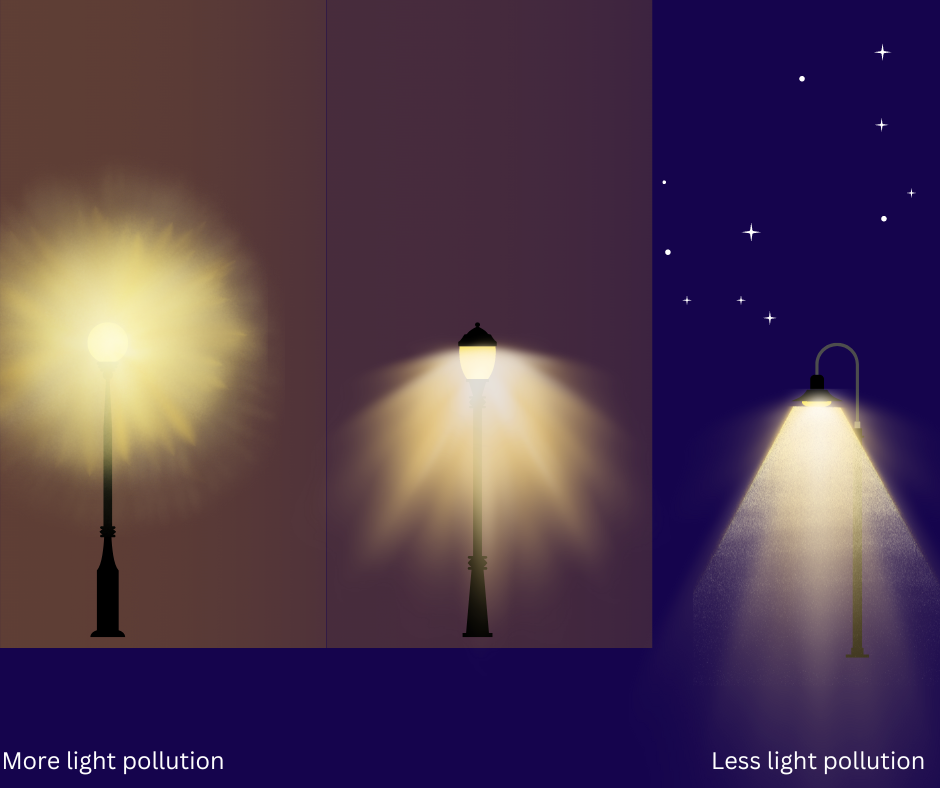
Shaun Lynch, co-chair of his Advisory Neighborhood Commission’s Transportation and Public Space Committee, noted that he supports the project and has not heard anything about this project from constituents yet.
“I would prefer that [DDOT] consult with the ANCs, just out of respect for the neighbors who are impacted,” Lynch said.
Ward 2 Councilmember Brooke Pinto noted via email that she has received concerns about light brightness and worked with DDOT to address them.
“Light pollution is an issue we must recognize and address as we implement this project to address concerns about overly bright lights,” she said.
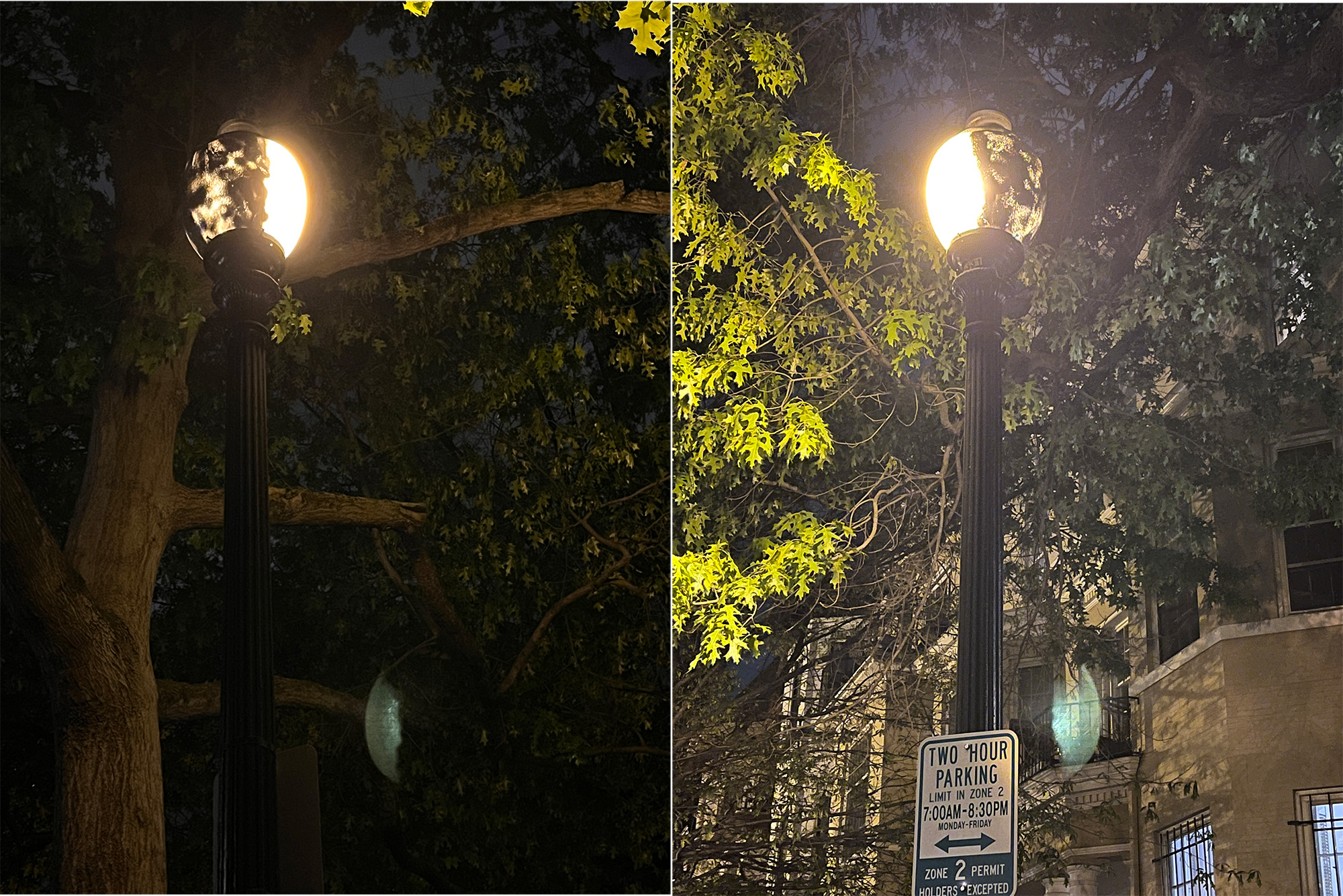
Savage and Dougherty stated that while people feel safer with more lighting, several studies have shown an inconclusive connection to safety and lighting. A 2017 Rice University study found that streetlights in and of themselves do not necessarily reduce crime. Chicago, for instance, increased its alleyway lighting, which ultimately caused an increase in reported crime. However, a University of Chicago study found that increased lighting reduced certain crimes like murder and robbery by 36%.
“Humans have evolved over the millennia to be afraid of the dark,” Dougherty said. “There’s this illusion that more light stops crime, and that’s been discredited and disproven.”
The district is part of the 80% of North Americans that cannot see the Milky Way.
“There’s this beautiful sky that you don’t get to see when you’re here,” Walls, the Ward 4 resident, said. “I understand some of the public safety arguments that say a brighter lit street is a safer street. I don’t know, maybe yes, maybe no, but I understand the argument. I understand these are far more energy-efficient, from that standpoint, I’m on board, I get it. But we tend to forget that we also lose things when we do these sorts of projects.”
